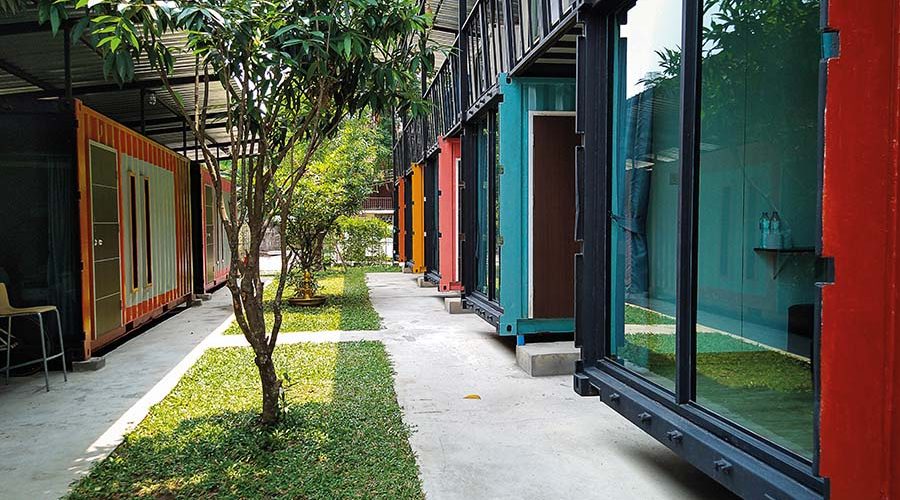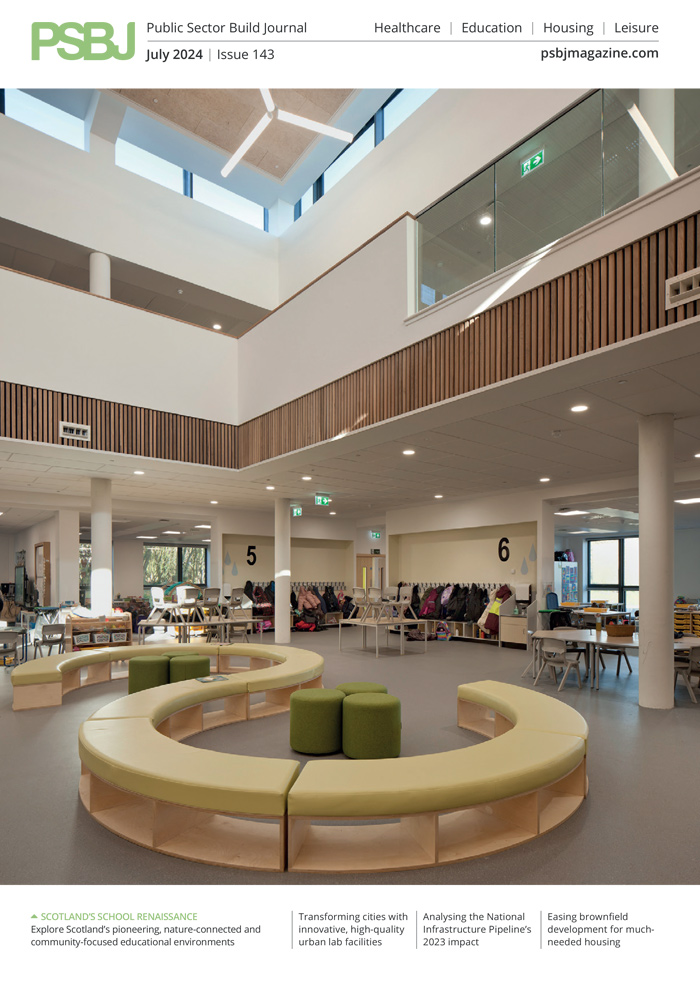Trevor Dowd, Executive Director at Trident Building Consultancy, considers the ability of modern methods of construction (MMC) to address the urgent need for aged care.
Trident Building Consultancy
Images of people enjoying new homes – and alarming stories about the lack of them – typically feature young couples and families. While this highlights an indisputable need, it also overlooks the fact that the UK has an ageing population. Housing availability affects both ends of the demographic spectrum.
According to research, the number of purpose-built retirement homes in the UK is set to increase by 30% in five years, yet we still face a significant shortage of homes for those in later life. This increase will only go some way towards alleviating the shortage, providing just one home for every 16 people aged over 65 who would consider downsizing. The same report states that due to our ageing population, the shortfall will continue to intensify.
There are now more people aged over 65 than ever, and as people age, they are more likely to want a home that offers some form of care or support – posing a further gap in provision.
Last year the Treasury called for 30,000 ‘later living’ homes to be built each year. This followed research which demonstrated that the NHS is overwhelmed by nearly a million extra older people suffering injuries after falling, which, when cared for in hospital increases costs by £2bn each year.
Modern methods of construction (MMC) provides a means by which buildings can be supplied twice as fast and one third cheaper than using conventional methods. Furthermore, the issues of disruption to neighbours, unpredictable weather and labour shortages are reduced, and MMC results in 60% fewer trucks on the roads and 90% less waste.
McCarthy and Stone, Housing 21, L&G and Urban Splash are already using MMC in the sector. The arguments for MMC are clear. After all, no-one would buy a top-of-the-range car constructed anywhere but in a factory, so why not choose a home built this way? Constructed with all the benefits of efficiency, economies of scale, quality control, supply chain and on-hand expertise that a factory can offer.
With MMC increasingly being used to create entire communities, I am surprised that it hasn’t yet caught on for whole retirement schemes – not only the housing element, but healthcare, community facilities and ancillary uses such as retail.
The key ingredients of a retirement village, according to Housing our Ageing Population Panel for Innovation (HAPPI), are space and flexibility; daylight in the home and in shared spaces; balconies and outdoor space; adaptability and ‘care-ready’ design; positive use of circulation space; shared facilities and ‘hubs’; plants, trees and the natural environment, energy efficiency and sustainable design, storage for belongings and bicycles, external shared surfaces and ‘home zones’. All of which is achievable through MMC.
In relation to the healthcare element of retirement schemes, the offsite approach allows for efficiencies to be gained when units of the same specification are required at scale. This means that bedrooms in a residential home or wards in a hospital are well suited to this method. And the mass production capabilities can still be combined with a bespoke approach, creating hospitals and care homes that are high quality, tech-ready, bespoke and flexible.
MMC first received backing from the Government following the Farmer Review, which identified ways to modernise and assist the UK’s struggling construction labour market. This has been followed by supportive fiscal and planning incentives and backing from Homes England.
Furthermore, MMC will enable the industry to meet the targets set out in the Government’s Construction 2025 Industrial Strategy which requires projects to be delivered 50% faster, reducing construction costs by 33% and lowering emissions by 50%.
The combined incentives of demographic and social change, political support and a chance to invest responsibly will, I have no doubt, release billions of pounds from investors and pension funds into the housing within the care sector. The sector itself would surely welcome efficiency and swift delivery along with the high levels of insulation and flexibility that MMC provides. At Trident Building Consultancy, our plans for expanding into this sector are at an advanced stage, and as befits the raison d’être of MMC, we anticipate a radically changed approach will revolutionise the market in a surprisingly short timeframe. Watch this space.











